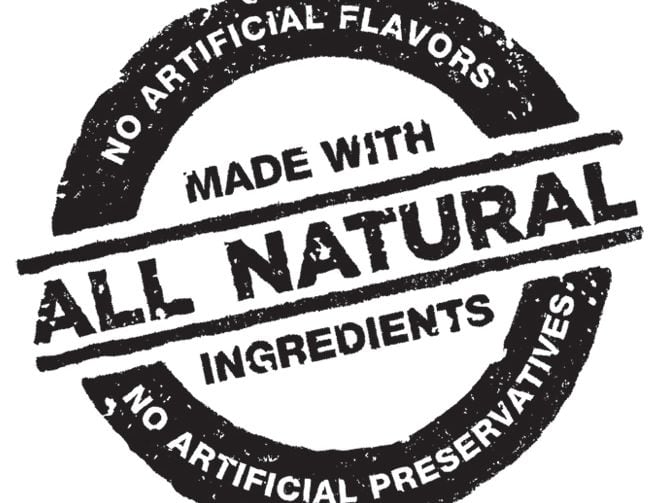The lawsuits - filed on behalf of the Organic Consumers Association and advocacy groups Moms across America and Beyond Pesticides (four were filed in multiple states this week) – mirror complaints filed in recent weeks by Brooklyn-based The Richman Law Group against Quaker Oats and Post Foods.
They acknowledge that the trace levels of glyphosate in selected Nature Valley granola products** (0.45 parts per million) are significantly below the Environmental Protection Agency's legally permitted threshold of 30ppm for cereal grains, but argue that reasonable consumers would not expect to see glyphosate residues at any level in products stating, “Made with 100% NATURAL whole grain OATS.”
Plaintiffs: Consumers think '100% natural' should mean no pesticide residues
The plaintiff in the lawsuit* filed in Superior Court in the District of Columbia (2016 CA 006309 B) argues: “These claims are false, deceptive and misleading. The oat products at issue are not made with 100% natural whole grain oats, but instead the oats contain the chemical glyphosate, a potent biocide and human endocrine disruptor, with detrimental health effects that are still becoming known.
"Consumers reasonably believe that a product or ingredient represented as natural or 100% natural does nt contain synthetic ingredients.”
It goes on to cite a 2014 phone survey by Consumer Reports showing that 66% of the 1,004 consumers polled believed that a ‘natural’ label on packaged and processed foods meant that ‘no toxic pesticides were used’ and that 86% believed that a ‘natural’ label on packaged and processed foods should mean that ‘no toxic pesticides were used.’
Plaintiffs: ‘Glyphosate in any amount is not natural’
Zen Honeycutt, founder and executive director of Moms Across America, added: “As a mother, when I read “100% Natural” I would expect that to mean no synthetic or toxic chemicals at all. Glyphosate is a toxic chemical that the EPA recognizes as a “reproductive effector” which “can cause liver and kidney damage” and “digestive effects.” It is unacceptable that Nature Valley granola bars contain any amount of this chemical.”
While the levels of glyphosate in the products targeted in the wave of lawsuits are extremely low, noted the plaintiffs in a press release, “a 2015 study published in the journal Environmental Health finds that chronic, low-dose exposure to glyphosate as low as .1 parts per billion leads to adverse effects on liver and kidney health.”
General Mills told FoodNavigator-USA: “We stand behind our products and the accuracy of our labels.”
Defense attorney: Anything can be deadly (including water) if the dose is too high
Defense attorneys contacted by FoodNavigator-USA about the earlier wave of lawsuits vs Quaker – which the complaints against General Mills and Post precisely mirror - predicted that the plaintiffs could face an uphill battle, meanwhile.
For a start, defendants in such cases will likely argue that the cases should immediately be stayed or dismissed on primary jurisdiction grounds as the FDA is currently conducting a probe into ‘natural’ claims, they observed (several recent ‘natural’ cases have recently been put on ice on these grounds ), predicted David L. Ter Molen, a partner in the Chicago offices of law firm Freeborn & Peters LLP.
Dale J. Giali, a partner at Mayer Brown, also commenting on the near-identical Quaker Oats lawsuits, added: “Among other things, whether any ingredient is dangerous is all about the ‘dosing' – anything can be deadly (including water) if the dose is too high. There is nothing dangerous about the products here based on plaintiff’s own allegations.
”They will also likely “assert one or more arguments for outright dismissal of the matter based on preemption and/or the complete failure to allege a claim, because as a matter of law no reasonable consumer would understand such products to be entirely devoid of trace amounts of pesticides where such levels are well below legally permitted thresholds,” he added.
Glyphosate and safety
A 2015 statement from the International Agency for Research on Cancer (part of the World Health Organization) that glyphosate was ‘probably carcinogenic to humans’ has given ammo to plaintiff’s attorneys going after Monsanto (which makes glyphosate/RoundUp), as well as food companies utilizing ingredients from crops sprayed with the herbicide, added food law attorneys we spoke to.
However, Monsanto, which developed glyphosate (‘RoundUp’), said it was baffled by the IARC’s statement as “there is no new research or data that was used; the most relevant, scientific data was excluded from review; the conclusion is not supported by scientific data; and there is no link between glyphosate and an increase in cancer when the full data set is included in a rigorous review”.
It also noted that the IARC's findings were inconsistent with those of two other WHO programs – the Core Assessment Group and the International Program on Chemical Safety – which have both concluded glyphosate is not carcinogenic.
A November 2015 report from the European Food Safety Authority (EFSA) also found that "glyphosate is unlikely to pose a carcinogenic hazard to humans and the evidence does not support classification with regard to its carcinogenic potential."
On April 29, 2016, the EPA posted a report concluding that glyphosate is “not likely to be carcinogenic,” but later took down the report and said it would publish a full assessment by the end of the year.
Meanwhile, a May 16 report by the Food and Agriculture Organization of the United Nations' (FAO's) Panel of Experts on Pesticide Residues in Food and the Environment, and the World Health Organization (WHO) Core Assessment Group on Pesticide Residues found that "glyphosate is unlikely to be genotoxic at anticipated dietary exposures."
* The case is The Organic Consumers Association, Moms across America and Beyond pesticides v General Mills Inc in the Superior Court of the District of Columbia (2016 CA 006309 B). It alleges violations of the Columbia Consumer Protection Procedures Act.

What do food & beverage CEOs think 'natural' means? Check out our recent industry vox pop
Read more about the FDA’s ‘natural’ probe HERE.
The other cases are: Danielle Cooper et al v The Quaker Oats Company, Case 3:16-cv-02364 filed in California; Lewis Daly v The Quaker Oats Company, Case 1:16-cv-02155 filed in New York; Robert Stephenson et al v. Post Foods LLC and Post Holdings Inc in the eastern district of New York (1:16-cv-03396); Any Wu et al vs Post Foods LLC and Post Holdings Inc in the northern district of California (3:16-cv-03494); and the Organic Consumers Association on behalf of the general public vs Post Foods LLC and Post Holdings Inc in the superior court of the district of Columbia civil division.
**According to the plaintiffs, “Tests conducted by an independent laboratory using liquid chromatography mass spectrometry with a reporting limit of 0.02 parts per million (ppm), revealed the amount of glyphosate in the Nature Valley [products] to be 0.45 ppm."
The products cited in the case include: Nature Valley granola bars, breakfast biscuits, oatmeal squares, oatmeal bars ad oatmeal bistro cups.

